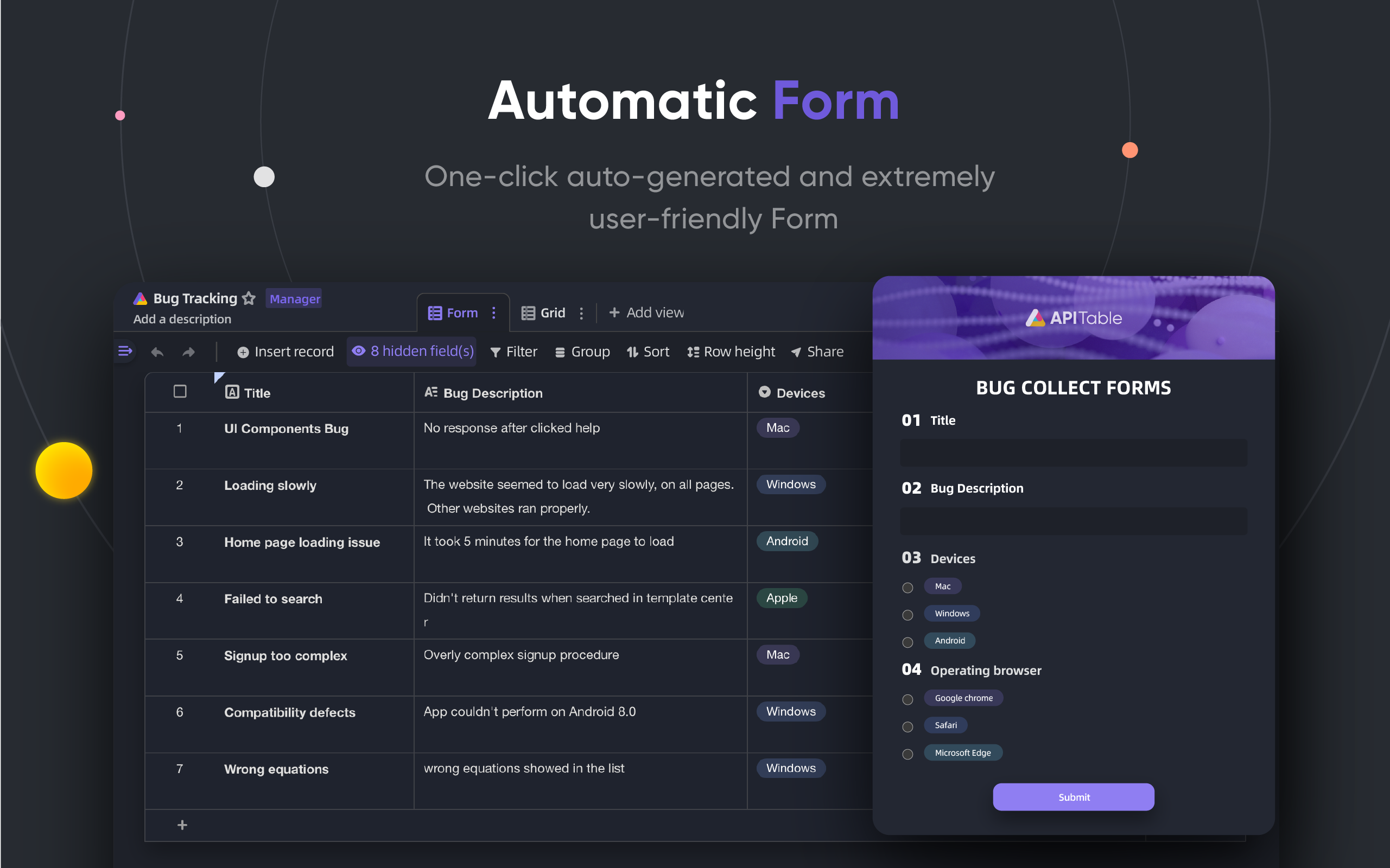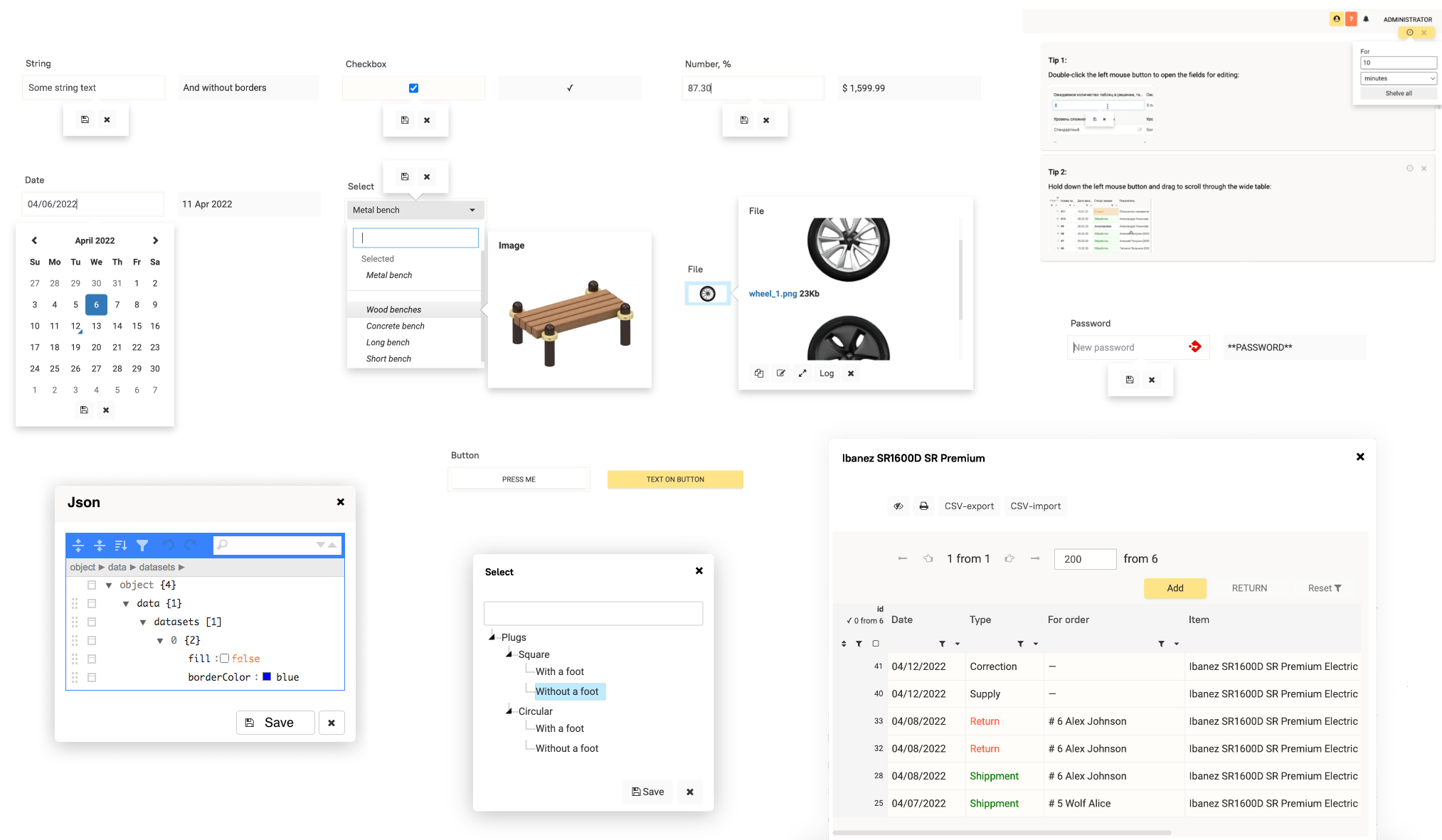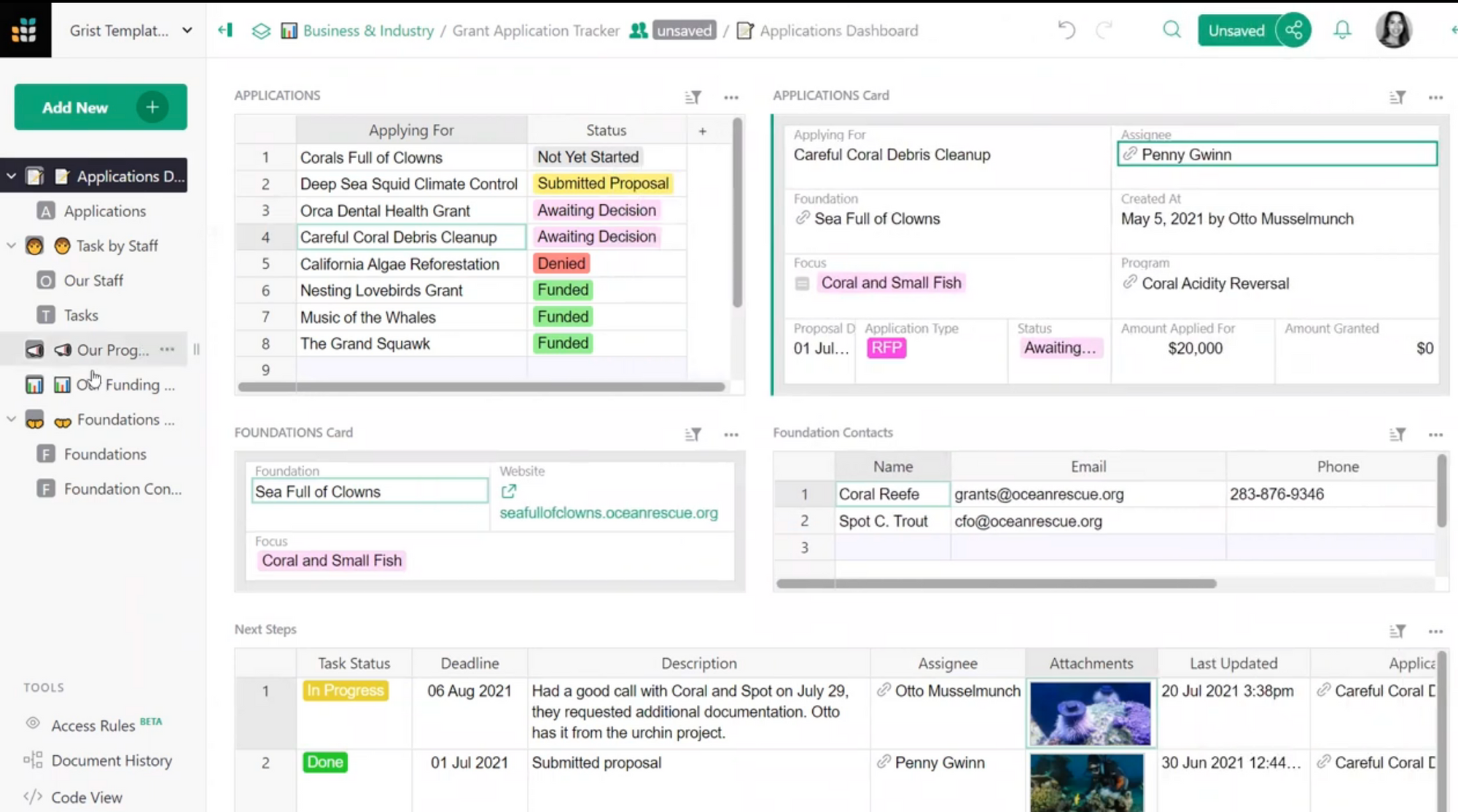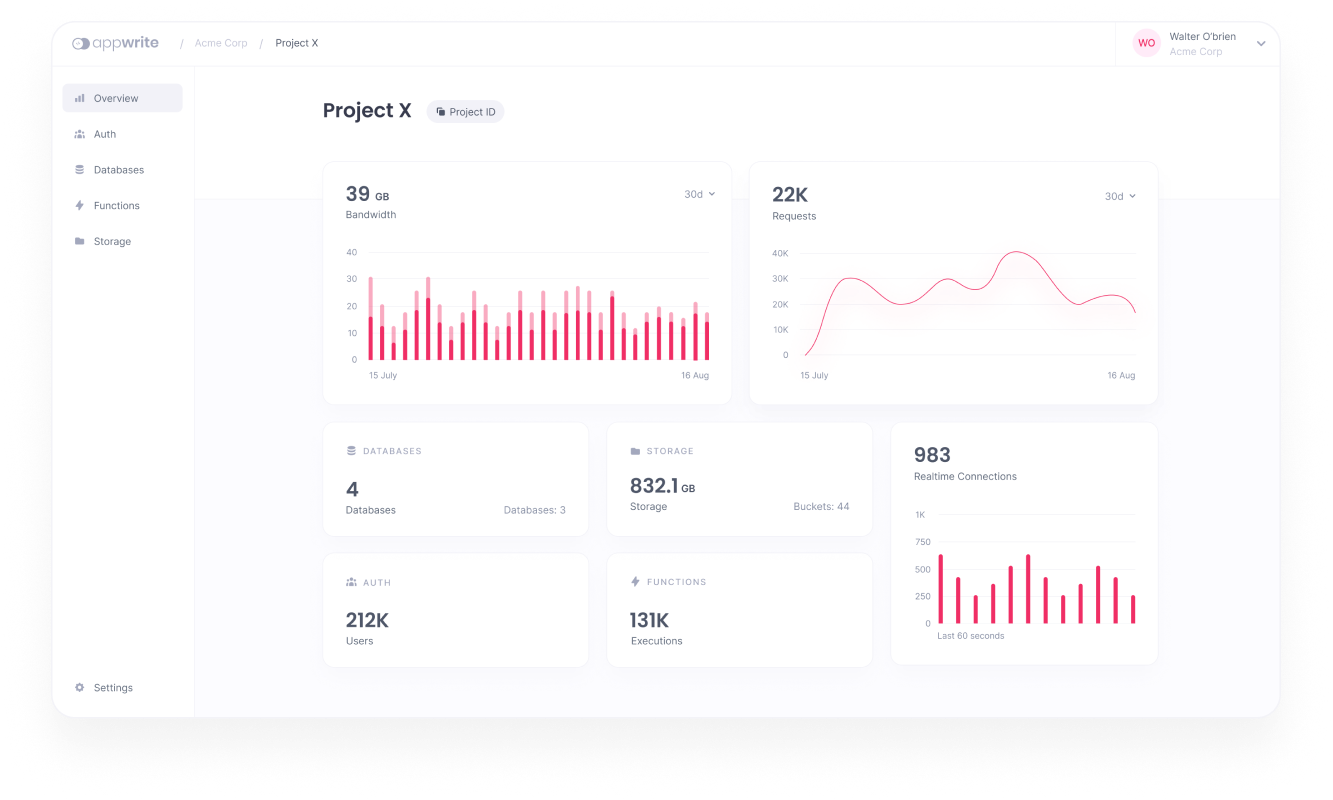No-code backend API-first solutions are platforms or tools that allow developers to build applications and manage databases without writing code. These solutions provide a visual interface and pre-built components that enable developers to design and create APIs, manage data, and configure application logic without the need for traditional programming.

These solutions are particularly beneficial for citizen developers and productivity because they eliminate the need for extensive coding knowledge and streamline the development process however many do still choose to work with a no code development company to optimize their experience.
Why?
Here are some reasons why they are good for citizen developers and productivity:
- Ease of Use: No-code backend API-first solutions typically have user-friendly interfaces and drag-and-drop functionality, making it easy for non-technical users to create and manage applications. This empowers citizen developers, individuals without coding backgrounds, to build their own applications and bring their ideas to life.
- Rapid Development: With no-code solutions, developers can quickly prototype and iterate on their ideas without spending significant time on coding and backend infrastructure. The visual interfaces and pre-built components allow for faster development cycles, enabling developers to deliver applications more efficiently.
- Reduced Complexity: No-code solutions abstract away the complexities of backend development, allowing developers to focus on building the application logic and user experience. This simplification of the development process reduces the learning curve and enables developers to build applications without having in-depth knowledge of complex backend technologies.
- Increased Productivity: No-code backend API-first solutions provide pre-built functionality and integrations, eliminating the need for developers to build everything from scratch. This saves time and effort, leading to increased productivity and faster application development.
- Flexibility and Customization: Despite being no-code solutions, many of these platforms offer customization options, allowing developers to tailor the application to their specific requirements. This flexibility enables developers to create unique and personalized applications, even without extensive coding knowledge.
In summary, no-code backend API-first solutions empower citizen developers and boost productivity by providing an intuitive interface, rapid development capabilities, reduced complexity, increased productivity, and flexibility for customization. These solutions democratize application development and allow individuals to create powerful applications without the need for extensive coding expertise.
1- Pocketbase
PocketBase is an incredible open source Go backend platform that offers a wide range of features to enhance your application. With PocketBase, you get an embedded database powered by SQLite, which not only stores your data efficiently but also provides real-time subscriptions, allowing you to stay updated with the latest changes in your data in real time.
In addition to the powerful database, PocketBase also provides built-in files and users management functionality. This means that you can easily handle file uploads and storage, as well as manage your users with ease. No need to worry about implementing these features from scratch - PocketBase has got you covered!
To make your development experience even more convenient, PocketBase comes with a user-friendly Admin dashboard UI. This intuitive interface allows you to easily manage and monitor your data, perform administrative tasks, and access important insights about your application.
Last but not least, PocketBase offers a simple REST-ish API that allows you to interact with your backend and perform various operations. Whether you need to retrieve data, modify records, or perform any other actions, the API provided by PocketBase makes it easy and straightforward.

2- NocoDB
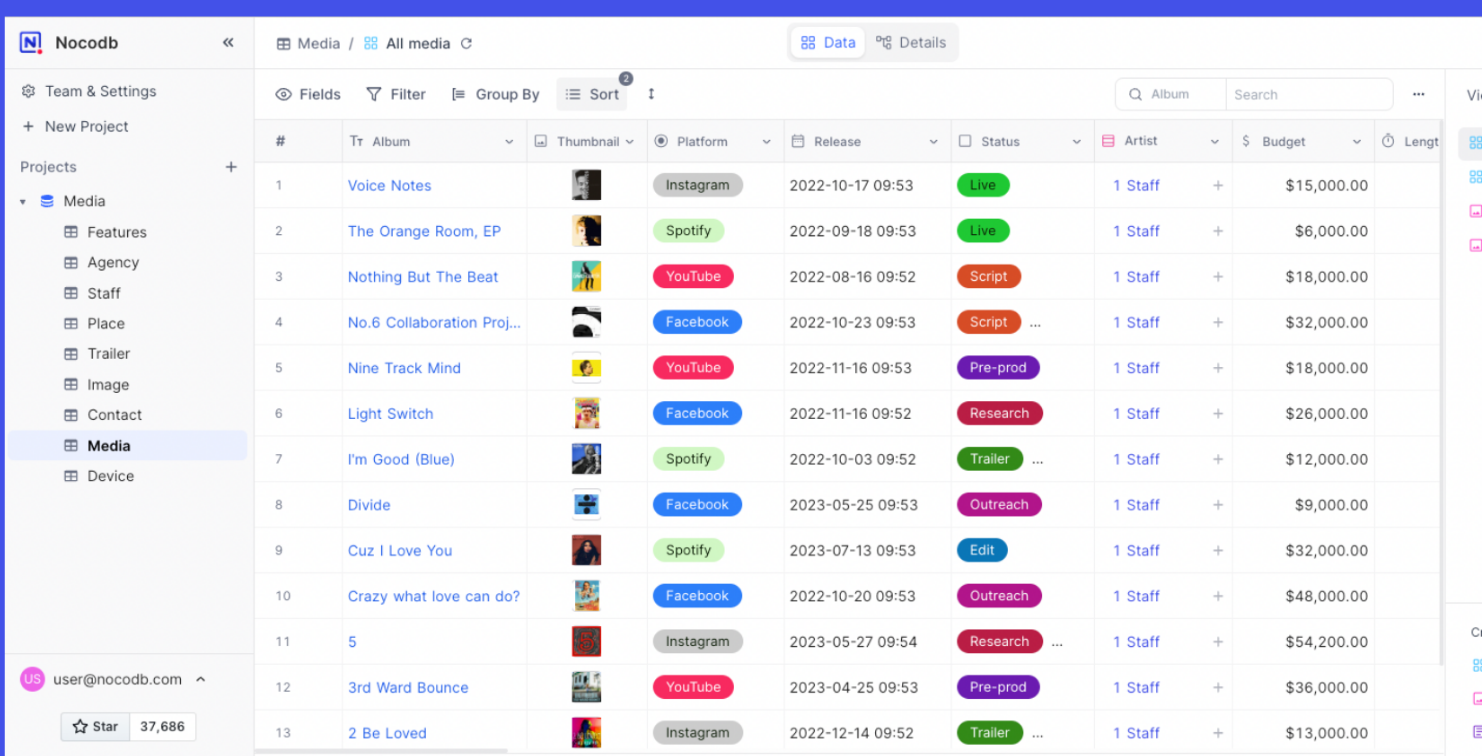
NocoDB is an open-source, self-hosted, and easy-to-use database management tool. It provides a web-based interface that allows you to manage and interact with your databases efficiently. With NocoDB, you can create, edit, and delete tables, as well as perform various database operations, all through a user-friendly UI.
One of the key features of NocoDB is its ability to generate REST APIs automatically based on your database schema. This means that you can easily access and manipulate your data using standard API calls, without the need to write complex backend code.
NocoDB also offers powerful filtering, sorting, and searching capabilities, allowing you to quickly find and retrieve the data you need. It supports various database engines, including MySQL, PostgreSQL, and SQLite, giving you flexibility in choosing the right database for your project.
In addition to its core features, NocoDB provides advanced functionalities such as user management, authentication, and role-based access control. This ensures that your data remains secure and only accessible to authorized individuals.
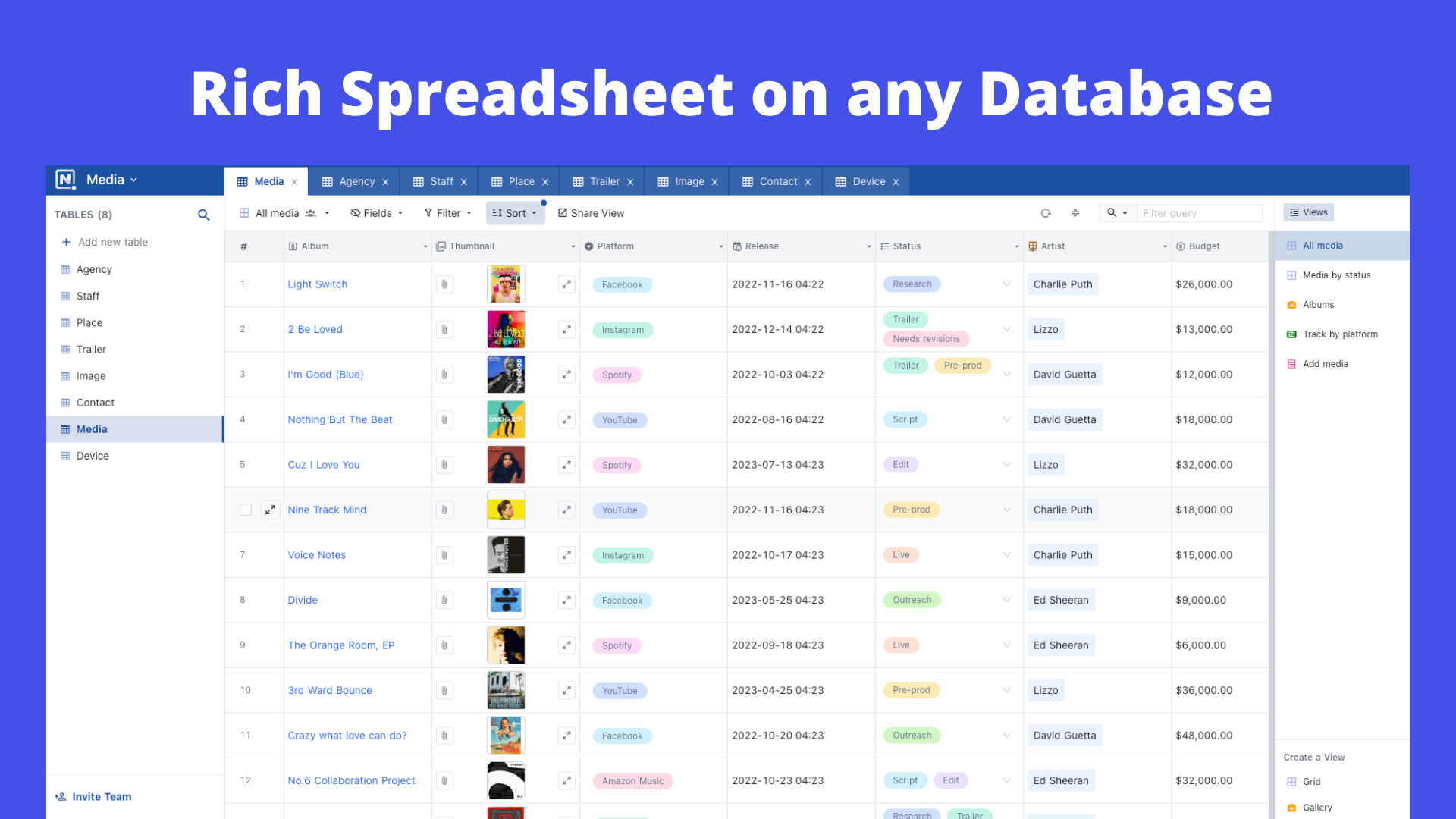
3- Strapi
Strapi is an open-source headless CMS (Content Management System) that enables developers to build and manage APIs quickly and easily. It provides a user-friendly interface for creating and managing content, allowing non-technical users to update and publish content without needing to rely on developers.
With Strapi, you can define your own content types and customize their fields and relationships. This flexibility allows you to create and structure the content according to your specific needs. You can also define permissions and roles to control who can access and modify the content.
Strapi provides a RESTful API out of the box, making it easy to consume the content from any client application. Additionally, it supports GraphQL, allowing you to query and manipulate the content using a more efficient and flexible approach.
One of the key advantages of Strapi is its plugin system, which allows you to extend its functionality with ease. You can choose from a wide range of existing plugins or create your own custom plugins to add specific features or integrate with external services.
Key features
- Self-hosted or Cloud: You can host and scale Strapi projects the way you want. You can save time by deploying to Strapi Cloud or deploy to the hosting platform you want**: AWS, Azure, Google Cloud, DigitalOcean.
- Modern Admin Pane: Elegant, entirely customizable and a fully extensible admin panel.
- Multi-database support: You can choose the database you prefer: PostgreSQL, MySQL, MariaDB, and SQLite.
- Customizable: You can quickly build your logic by fully customizing APIs, routes, or plugins to fit your needs perfectly.
- Blazing Fast and Robust: Built on top of Node.js and TypeScript, Strapi delivers reliable and solid performance.
- Front-end Agnostic: Use any front-end framework (React, Next.js, Vue, Angular, etc.), mobile apps or even IoT.
- Secure by default: Reusable policies, CORS, CSP, P3P, Xframe, XSS, and more.
- Powerful CLI: Scaffold projects and APIs on the fly.
4- Cockpit
Cockpit is a self-hosted, open-source, and user-friendly CMS (Content Management System) that allows you to easily manage and organize your content. It provides a simple and intuitive interface for creating, editing, and publishing content, making it suitable for both developers and non-technical users.
With Cockpit, you can define your own content structures and fields, giving you full control over the structure and organization of your content. It supports various field types, including text, image, file, relationship, and more, allowing you to create rich and dynamic content.
In addition to content management, Cockpit offers features such as user management, role-based access control, and multi-language support, ensuring that you can collaborate with your team and manage your content efficiently.
Cockpit also provides a powerful RESTful API, allowing you to easily retrieve and manipulate your content from any client application. This makes it a versatile solution for building websites, mobile apps, or any other application that requires content management.

5- Baserow
Baserow is an open-source no-code database tool that allows you to easily create and manage databases without any coding knowledge. With Baserow, you can build custom databases and tables, define fields and relationships, and import or export data with ease.
One of the key features of Baserow is its intuitive drag-and-drop interface, which allows you to design your database structure visually. You can add and arrange fields, set data types, and configure validation rules without writing a single line of code.
In addition to its visual interface, Baserow provides a RESTful API that enables you to interact with your database programmatically. This allows you to retrieve, insert, update, and delete data using standard API calls, making it easy to integrate your database with other applications.

6- Supabase
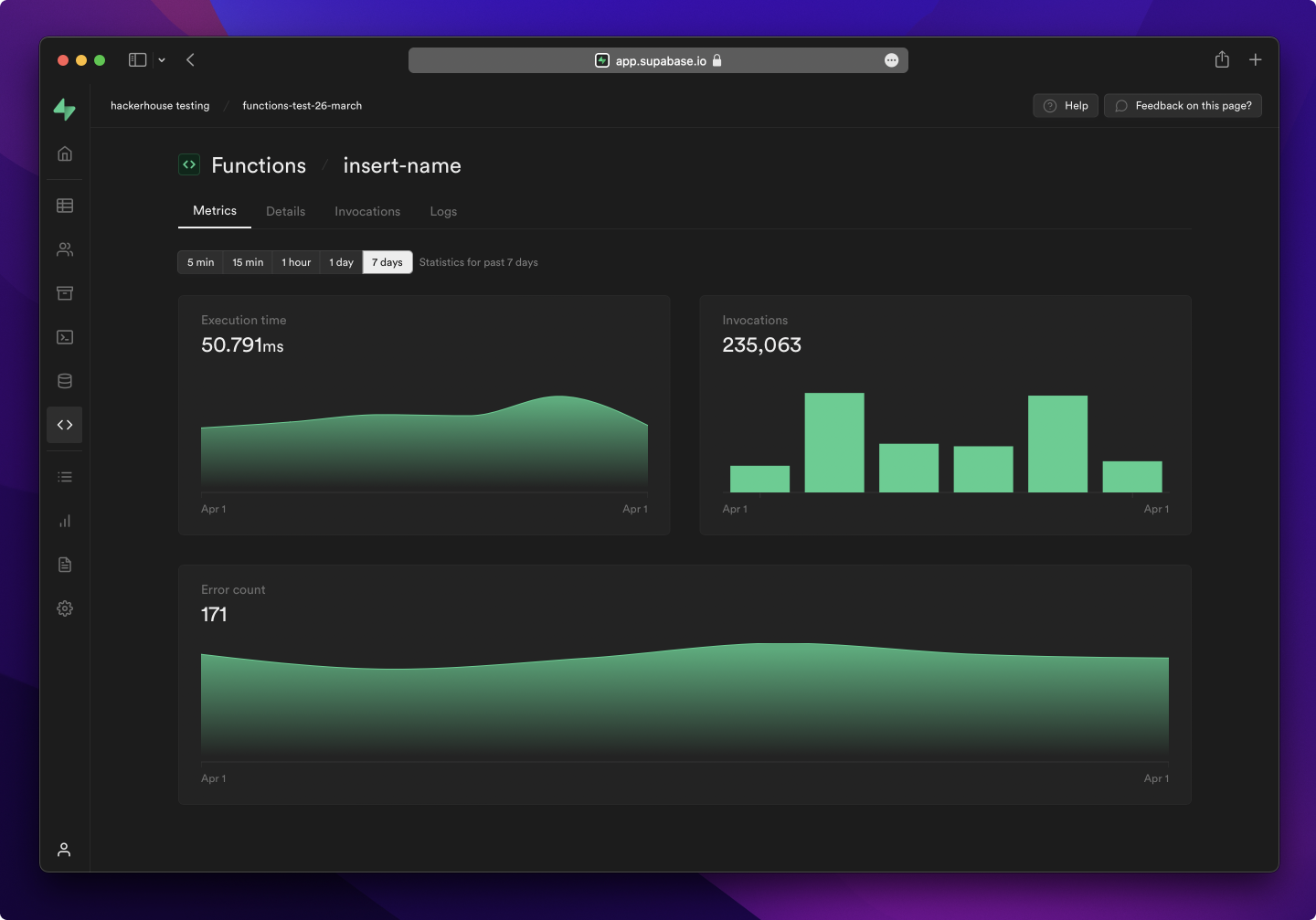
Supabase is an open-source alternative to Firebase that provides a set of tools and services for building scalable and secure applications. It combines the power of a PostgreSQL database with a real-time WebSocket API and authentication services, offering a complete backend infrastructure for your applications.
With Supabase, you can easily set up and manage your database without the need for complex server configurations. It provides a user-friendly interface and a set of client libraries that make it easy to interact with your database and perform CRUD operations.
One of the key features of Supabase is its real-time capabilities. It includes a real-time WebSocket API that allows you to subscribe to changes in your data, enabling you to build applications that update in real time. This is particularly useful for building collaborative applications, chat systems, or any application that requires real-time updates.
Supabase also includes authentication services, allowing you to easily add user authentication and authorization to your applications. It supports various authentication providers, such as email/password, Google, and GitHub, giving you flexibility in choosing the right authentication method for your users.
In addition to its core features, Supabase provides other functionalities such as file storage, serverless functions, and scheduled jobs. This allows you to build full-stack applications entirely on the Supabase platform, eliminating the need for additional backend infrastructure.
Overall, Supabase is a powerful and flexible platform for building scalable and real-time applications. Its combination of a PostgreSQL database, real-time WebSocket API, and authentication services makes it an excellent choice for developers looking for a complete backend solution.
7- Motor Admin
Motor-Admin is an open-source MongoDB administration tool built with Node.js and React. It provides a user-friendly interface for managing MongoDB databases, collections, indexes, and documents.
With Motor-Admin, you can easily view and edit your MongoDB data, execute queries, and perform administrative tasks. It offers features such as search, filtering, sorting, and pagination to help you navigate and analyze your data effectively.
In addition to its data management capabilities, Motor-Admin also provides a visual query builder that allows you to create complex MongoDB queries without writing any code. This makes it easier for both developers and non-technical users to interact with the database.
Motor-Admin supports authentication and role-based access control, ensuring that only authorized users can access and modify the MongoDB data. It also provides a customizable user interface, allowing you to tailor the tool to your specific needs.
Whether you are a developer working with MongoDB or a database administrator managing MongoDB databases, Motor-Admin offers a convenient and efficient way to interact with your data and perform administrative tasks.
8- Directus
Directus is an open-source headless CMS and API toolkit that allows developers to create custom content models and build APIs. It offers full control over data structure, supports various field types, and provides a user-friendly interface for content editors. With its API-first approach and advanced features like user management and versioning, Directus is a popular choice for projects requiring a headless CMS.
Key features
Directus offers the following key features:
- Custom Content Models: Directus allows developers to create and customize content models according to their specific needs, providing full control over data structure.
- API-First Approach: It follows an API-first approach, enabling developers to build custom APIs easily and efficiently.
- User Management: Directus provides robust user management functionality, allowing administrators to control access and permissions for different users and roles.
- Versioning: It offers versioning capabilities, allowing you to track and manage changes to your content over time.
- Field Types: Directus supports various field types, including text, number, date, media, and more, giving you flexibility in structuring your content.
- User-Friendly Interface: It provides a user-friendly interface for content editors, making it easy for non-technical users to create, edit, and manage content.

9- SilkNode

Slicknode is a comprehensive GraphQL backend, gateway, and Headless CMS solution that empowers users to create customized backends and digital products with efficient content management capabilities. It is comprised of three essential components:
- GraphQL Gateway: With Slicknode, you can effortlessly compose built-in modules, tailor-made data models, and integrate third-party APIs into a unified GraphQL API within minutes. This streamlined process ensures seamless connectivity and enhances the overall performance of your backend system.
- Content/Data Modeling: Slicknode offers a declarative approach to model and structure your content and data using the GraphQL schema definition language. By leveraging this powerful feature, you can easily define and manage your data with great precision. Slicknode automatically generates flexible CRUD queries and mutations, complete with advanced functionalities such as filters, pagination, and authorization. Additionally, the automatic database migration feature, based on your schema definition, ensures full version control, enabling you to review, branch, merge, and integrate with CI-Pipeline seamlessly. This also facilitates offline development, allowing you to work on your projects even without an internet connection.
- Admin UI: One of the standout features of Slicknode is its automatically generated Admin-UI, which is specifically tailored to your data model. This intuitive user interface provides advanced content workflows, including the ability to draft, review, and publish content seamlessly. Additionally, Slicknode's Admin-UI supports localization, allowing you to easily manage content in multiple languages. The version history feature further enhances your content management capabilities, enabling you to track and revert changes as needed.
Features
- Instant GraphQL API on managed cloud infrastructure (or self-hosted)
- Modular architecture
- Custom publishing workflows (e.g.: Draft > Review > Translation > Published)
- Strong data consistency with referential integrity and automatic database migrations
- Internationalization
- Declarative permission model (for multi tenant SaaS, customer facing apps, enterprise etc.)
- Powerful content modeling features with relations, union types, interfaces, enum types etc.
- Multi-Stage development workflow
- Works with any frontend technology (React, Angular, Vue, Javascript, iOS, Android etc.)
- Extend existing GraphQL APIs
- Apollo Federation
- Extensible with custom code (Javascript, TypeScript, Flow etc.)
10- Saltcorn
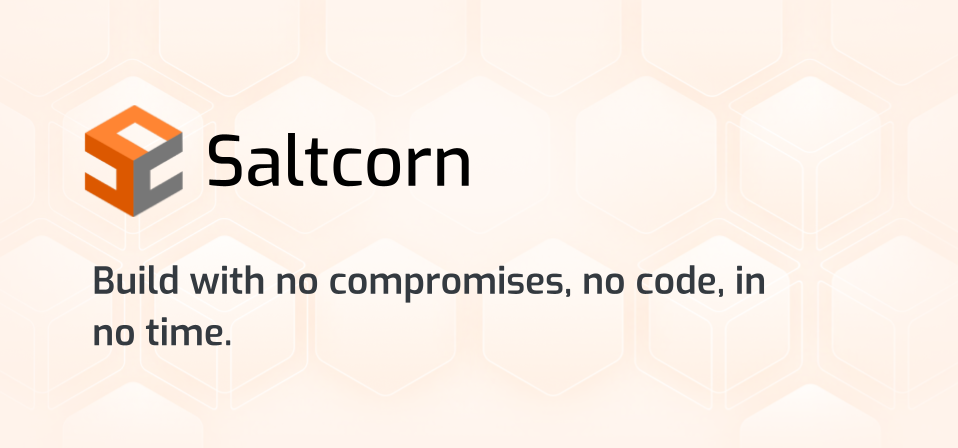
Saltcorn is an extensible open-source no-code database application builder. It allows you to build web applications based on relational data by providing flexible views, datatypes, and layouts. With Saltcorn, you can easily create custom web applications without writing code, making it accessible to non-technical users as well.
The platform offers a variety of features and functionalities to streamline the development process. It provides a range of pre-built field types, such as text, number, date, and dropdowns, allowing you to define and manage your data effectively. Additionally, Saltcorn offers customizable views, enabling you to create tailored interfaces for presenting and interacting with your data.
One of the key advantages of Saltcorn is its extensibility. It allows you to add custom logic and functionality to your applications through plugins and custom actions. This allows you to adapt the platform to your specific needs and integrate with other systems seamlessly.
Furthermore, Saltcorn offers user management and authentication capabilities, ensuring that your applications are secure and accessible only to authorized users. It also provides role-based access control, allowing you to define different permissions and access levels for different users or user groups.
Releated Articles

